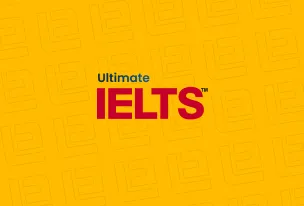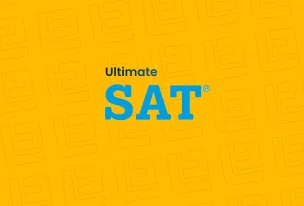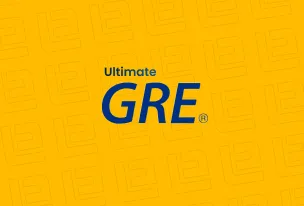
Ultimate EducationA Statement of Purpose (SOP) for a scholarship is a document that students submit to persuade the admissions committee that they are deserving candidates. It differs from a general SOP as it is tailored to showcase qualifications, passion for the chosen field, skills, future goals, experiences, motivation for applying, and how the applicant is a suitable recipient for a specific scholarship.
An effective SOP for a scholarship serves to inform the scholarship committee about the applicant’s background and their dedication to their goals. This article provides a comprehensive guide on the format, types, differences, and tips to help you create a strong SOP that enhances your chances of receiving a scholarship
Read also: Scholarship vs Fellowship: What’s the difference?
What is an SOP for a Scholarship?

Ultimate EducationAn SOP for a scholarship is an essay written by students to justify their eligibility for a scholarship and highlight the aspects of their life that have shaped them. It’s an opportunity to showcase academic achievements, research experiences, and personal qualities that make them deserving recipients of the scholarship. The SOP also allows applicants to express their passion, motivation, and commitment to their goals while explaining how the scholarship will facilitate their success.
General SOP vs. Scholarship SOP
General SOP

Definition
A general Statement of Purpose (SOP) is a document submitted by applicants as part of their application for a specific academic program, be it undergraduate or postgraduate. It serves as a comprehensive overview of the applicant’s qualifications, experiences, achievements, goals, and motivations for pursuing that particular program. The SOP allows the applicant to present a compelling case for their suitability and enthusiasm for the chosen field of study.
Types
There are no specific types of general SOPs. The content and structure of a general SOP can vary widely, as it depends on the individual applicant’s background, experiences, and the specific program to which they are applying. Each applicant’s general SOP is unique to their personal and academic journey.
Focus
The primary focus of a general SOP is to provide a well-rounded understanding of the applicant. It emphasizes several key aspects, including the applicant’s qualifications, skills, achievements, professional and personal experiences, their future goals in the chosen field, and the rationale behind selecting the specific program. In essence, a general SOP aims to tell a comprehensive story about the applicant’s academic and personal journey and how it aligns with their chosen academic program.
Learn how to create a compelling academic CV tailored to your scholarship application.
Scholarship SOP
Definition
A Scholarship Statement of Purpose (SOP) is a document written by students who are seeking a scholarship to finance their education. The SOP is a persuasive essay that explains the applicant’s passion, academic background, and reasons for applying for a scholarship. It aims to convince the scholarship committee that the applicant is a deserving candidate who would benefit from the financial support provided by the scholarship.
Types
Scholarship SOPs come in various categories, each tailored to specific types of scholarships. These categories may include academic scholarships, sports scholarships, athletic scholarships, merit-based scholarships, scholarships for minority students, community-based scholarships, veterans scholarships, average performance scholarships, unusual scholarships, and creative scholarships, among others. Each type of scholarship SOP is designed to address the unique criteria and goals of the scholarship program.
Focus
The focus of a Scholarship SOP is primarily on the purpose of applying for the scholarship. It delves into the applicant’s motivation and explains why they are seeking financial support. This SOP discusses the applicant’s financial need and their plans for using the scholarship for growth.It explains why the applicant deserves the specific scholarship they are applying for. This SOP discusses the applicant’s financial need and their plans for using the scholarship for growth.It explains why the applicant deserves the specific scholarship they are applying for.
Scholarship SOPs aim to make a compelling case for why the applicant should be awarded the scholarship by emphasizing their eligibility and potential to benefit from it. While both general SOPs and Scholarship SOPs are written to support an application, they differ in their purpose and content. General SOPs provide a broad overview of an applicant’s qualifications and motivations for pursuing an academic program, while Scholarship SOPs focus specifically on the need and reasons for financial aid.
Read also: Create an Extraordinary Scholarship Motivation Letter
Scholarship SOP Types

Ultimate EducationScholarships come in various forms, including:
- Minorities Scholarship: For students from minority backgrounds pursuing international educational opportunities.
- Athletic Scholarship: Awarded to students excelling in sports, enabling them to balance athletics and academics.
- Academic Scholarship: Recognizes strong academic performers with good scores and GPAs.
- Women’s Scholarship: Supports female students with financial need in pursuing higher education.
- Community-Based Scholarships: Awarded to students engaged in local community activities.
- Veterans Scholarships: Designed for veterans to gain international study experiences.
- Average Performance Scholarships: Available for students with average or above-average academic performance.
- Unusual Scholarships: Awarded based on unique criteria or interests.
- Creative Scholarships: Reward creativity and talent in various domains.
Read also: Explore KAIST University Scholarships 2024-2025
Format of Scholarship SOP
Introduction:
- The introduction is the opening section of your Scholarship SOP. It should be concise but engaging, grabbing the reader’s attention from the start.
- Briefly introduce your background, including relevant academic and personal details.
- State your reasons for applying for the scholarship. Explain why you are seeking financial support and your overarching goals.
Academic Qualifications:
- This section is where you detail your academic background.
- Highlight your major or area of study, mentioning any exceptional academic achievements.
- Discuss any relevant research experiences or projects that are pertinent to the scholarship.
Work Experience:
- In this part, you can elaborate on your work-related experiences and contributions.
- Include details about internships, volunteer work, part-time jobs, or any other work experiences that are relevant to your field of study.
- Highlight your accomplishments and how these experiences have shaped your aspirations.
Scholarship Purpose:
- Here, explain in clear terms why you are applying for the scholarship.
- Provide insights into your financial situation and your need for the scholarship.
- Elaborate on your specific motivations for seeking this particular scholarship. How does it fit with your ambitions and goals?
Future Goals:
- Share your long-term career aspirations, both in terms of academic and professional objectives.
- Explain how the scholarship will play a crucial role in achieving these goals. Be specific about the impact the scholarship will have on your future endeavors.
Conclusion:
- The conclusion is your opportunity to wrap up your SOP in a compelling manner.
- Reiterate your passion for the field and your commitment to success.
- Summarize your reasons for applying and why you are a deserving candidate for the scholarship.
Remember to proofread your essay for grammar and typos to maintain a professional and formal presentation.
Importance of Scholarship SOP

Ultimate EducationA Scholarship Statement of Purpose is a critical component of your scholarship application, and its importance cannot be overstated. Here’s why it’s so vital:
- Showcasing Your Qualifications: The SOP allows you to present a comprehensive picture of your qualifications, both academic and personal. It’s a chance to demonstrate your excellence and suitability for the scholarship.
- Expressing Your Goals and Aspirations: It offers a platform to articulate your educational and career goals. You can explain how the scholarship will help you achieve these goals, making a strong case for why you need the financial support.
- Highlighting Financial Need: If you have significant financial need, the SOP is the place to convey this. Many scholarships are awarded to students who can demonstrate that they require financial assistance to pursue their education.
- Persuasion and Differentiation: An effectively written SOP can be persuasive. It helps you stand out from other applicants by conveying not only your qualifications but also your unique story, motivation, and passion for your chosen field of study.
- Commitment and Potential: It underscores your commitment and potential for success in your chosen field. The committee can evaluate how the scholarship will contribute to your development and success.
- Formal and Professional Presentation: By ensuring your SOP is free of grammatical errors and typos, you present yourself in a formal and professional manner, which can leave a positive impression on the scholarship committee.
A well-crafted Scholarship SOP is a powerful tool for making your case to the scholarship committee. It goes beyond your academic achievements and financial need, allowing you to tell your unique story, demonstrate your commitment, and persuade the committee that you are the right choice for the scholarship.
Read also: Open the doors to your dreams with the 2024-2025 Fulbright Scholarship
Tips for an Exceptional SOP for Scholarship

Ultimate EducationLet’s expand on the tips for creating an exceptional Statement of Purpose (SOP) for a scholarship:
Customize to the Specific Scholarship and Program
Tailoring your SOP to the particular scholarship and the program you’re applying to is crucial. Each scholarship may have specific criteria and objectives. Highlight how you align with those criteria and how the scholarship will help you achieve your educational and career goals.
Include Relevant Experiences, Skills, and Achievements
Your SOP should be a showcase of your qualifications and experiences that are directly related to the scholarship and your chosen field of study. Include specific examples of academic achievements, extracurricular activities, research projects, or community involvement that are relevant to the scholarship’s goals.
Use Specific Examples
Rather than making general statements, use concrete examples to illustrate your abilities and experiences. Provide specific instances where you demonstrated leadership, problem-solving skills, teamwork, or any other qualities that the scholarship committee seeks.
Be Honest and Transparent
Honesty is key. Be truthful about your experiences, qualifications, and financial need. Exaggeration or misinformation can lead to disqualification. Scholarship committees appreciate sincerity and authenticity in applicants.
Thorough Proofreading
Proofreading is essential to ensure that your SOP is free of grammatical errors, typos, and logical inconsistencies. A manuscript that has been carefully edited exudes professionalism and attention to detail.
Consider seeking assistance from a trusted friend, family member, or a professional editor to review your SOP for feedback and corrections.
Show Passion and Purpose
While focusing on qualifications and achievements is crucial, don’t forget to convey your genuine passion for your chosen field of study. Explain why you’re enthusiastic about pursuing this path and how the scholarship will play a pivotal role in fulfilling your aspirations.
Read also: Fully-Funded Scholarships: The Door to a Global Education
Follow the Chevening Scholarship’s rigorous selection process: ambition, strong background and commitment to positive change, here.
Do’s and Don’ts for Scholarship SOP
Do’s:
Customize Your SOP:
Each scholarship has specific criteria and goals. Tailor your SOP to align with these objectives, making it clear why you are a strong candidate for that particular scholarship. Highlight how your experiences and aspirations match the scholarship’s mission.
Include Relevant Experiences and Achievements:
Focus on experiences, academic accomplishments, and personal achievements that are directly related to the scholarship’s goals. Demonstrate your qualifications and potential by citing relevant examples.
Use Specific Examples:
Rather than making general claims, provide concrete examples that showcase your abilities and experiences. Specific instances and anecdotes make your SOP more compelling and memorable.
Be Honest and Transparent:
Honesty and transparency are crucial. Provide accurate information about your qualifications, achievements, and financial need. Fabrication or exaggeration can harm your credibility.
Don’ts
Don’t Lie or Exaggerate:
Avoid making false claims or exaggerating your qualifications. Scholarship committees value honesty and integrity. Exaggeration can negatively impact your application.
Avoid Uncommon or Complex Language:
Keep your language clear and straightforward. Using unnecessarily complex or uncommon words may hinder the committee’s understanding of your SOP. Aim for clarity and simplicity.
Follow the Scholarship Committee’s Format:
Adhere to the format and guidelines provided by the scholarship committee. Failure to follow their instructions can reflect negatively on your application, suggesting an inability to comply with requirements.
Don’t Submit Without Proofreading:
Submitting your SOP without thorough proofreading can lead to avoidable errors or mistakes. Take the time to review and revise your document to ensure it’s free of grammatical and typographical issues.
Don’t Miss Deadlines; Submit on Time:
Missing the scholarship application deadline can result in automatic disqualification. Plan ahead to complete your SOP and all application materials well in advance of the due date to avoid any last-minute complications.
By adhering to these do’s and don’ts, you can create a Scholarship SOP that is honest, well-crafted, and aligned with the scholarship’s objectives. This will increase your chances of making a positive impression on the scholarship committee and improving your likelihood of receiving the scholarship.Well, now you know what you need to prepare.
Let’s start Ultimate Education to achieve a score that meets the requirements of your target universities. There are many online practice tests available on the internet, but still feeling confused? Ultimate Education




